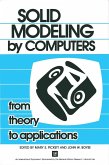When software systems are delivered too late, when they fail to meet the needs of their users, when only a fraction of their capacity is used, when their maintenance costs more than their development, when changes are impossible - then there is a frantic search for new and better engineering techniques and tools. Dahlbom ande Mathiassen advocate a different approach to these problems: pausing and reflection. Surprisingly little time in the education of systems developers is devoted to a consideration of the methods, goals and politics of computerization. The core of the book is an examination of the notion of quality itself. The effective computer professional must arrive at his or her sense of what quality can and should mean in a particular situation in order to resolve the inevitable creative tensions between the nature of people and that of computers, between structured systems and the process of change. The authors draw on a rich range of literature from philosophy, organizational theory, and technology and social change to support their points. But, adducing many real-life examples they avoid jargon and presuppose no formal background. Computer in Context will help students, computer professionals, and managers alike understand better what it is they are trying to do with computer systems, how and why.
Hinweis: Dieser Artikel kann nur an eine deutsche Lieferadresse ausgeliefert werden.
Hinweis: Dieser Artikel kann nur an eine deutsche Lieferadresse ausgeliefert werden.
"Dahlbom and Mathiassen have written a pathbreaking book about software development in a meaningful human context. They examine key assumptions about the role of software developers, and their relationship to culture and work in a way which touches everyday practice and which can subtly transform it. It should be read by every practicing software developer." - Rob Kling, University of California, Irvine
"I enjoyed this book. It is both more amusing and more challenging than the usual books on system design." - Joseph A. Goguen, University of Oxford.
"I enjoyed this book. It is both more amusing and more challenging than the usual books on system design." - Joseph A. Goguen, University of Oxford.








